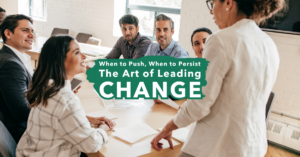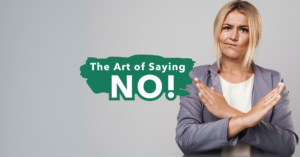I often get asked what books I recommend for certain topics; so in this series, I’ll share my top 10 recommendations for books on: Organizational Change, Self Development, Leadership, and Entrepreneurship. I’ve culled through hundreds of books and selected those that I refer to over and over and over again. These are the ones that are dog-eared, stuffed with notes and Post-its.
My hope is that you’ll share the titles of the books that inspire and inform you… as it is not too late to put then on my wish list for Santa.
Kris
———
We are all in throes of massive change – and the reality is that the pace and magnitude of change we are facing is only going to amplify. So having a basic grasp of how change works in organizations is important for us all. Warning: This list will not be for the faint of heart, so I’ll rate it on digestibility. Some will be suitable for all levels, and others for those who like to take a deep dive. And I am always looking for more here – so I’ll look forward to the books you recommend on this topic.
Influencer: The New Science of Leading Change by Grenny, Patterson, Maxfield, McMillan and Switzler
Easy to read, more challenging to fully grasp, powerful when you implement the concepts. This is a book that looks at change from a systems perspective… and articulates why motivation alone will not work, and why knowing what to do does not always result in actually making the change you desire. The authors do a great job of showing how social pressure and cultural or organizational structures and systems impact behavior – and what needs to happen to effect the change you want. Here’s a fun video that shows the key concepts.
Made to Stick: Why Some Ideas Survive and Others Die by Chip and Dan Heath
Another easy to read, nicely packaged books with plenty of examples and a formula to apply their concepts. If you are attempting to influence others to change, you need powerful messages that resonate or are “sticky” as the Heath brothers would say. The book breaks down into six categories what makes a message stick: Simple, Unexpected, Concrete, Credible, Emotional and uses Stories. I teach my Purdue students this method, and their presentations go from mind-numbing to moving and memorable. Great read if you EVER need to use verbal skills (oral or written) to move a group to action.
Managing Transitions: Making the Most of Change by William Bridges
A classic in the field of change. A short book (only 122 pages), easy to read, but more academic than the previous two. This is the cornerstone of change work – and will help you better understand and navigate any situation you are faced with that involves change, no matter if you are leading it, supporting it or having the change inflicted on you. Bridges focuses on the internal or psychological process of transition, identifying 3 stages and strategies to effectively manage each.
The Heart of Change: Real-Life Stories of How People Change Their Organizations by John Kotter
A Harvard Business School book, but don’t let that scare you. Kotter is readable and uses plenty of stories and examples from the 100 companies he studied . Kotter presents an 8 step framework for fostering change in organizations – that is solid but very high level (think 5,000 feet). If you are a person who needs more detailed, step by step guidance, this book will not be for you. But it is a great overview and solidly researched and written.
Appreciative Inquiry: A Positive Revolution in Change by David Cooperrider and Diana Whitney
If you are convinced (as I am) that focusing on strengths and on what is working is far more powerful that weaknesses and problems, Cooperrider has fine-tuned a change methodology called Appreciative Inquiry (AI) that creates positive energy toward creating a desired future. The AI process is designed for high involvement across the organization which allows those affected to co-create the change. As opposed to Kotter, Cooperrider provides step-by-step methodology.
I use elements of AI daily in my work. The biggest testament was using it for a “required” course in Change Leadership at Purdue. The class was an evening class and most students saw this as a “check the box” and do the least possible to get by. We used the AI process to discern how to make this class “the best class you’ve taken” – and the shift was powerful and palatable.
Relatively easy to read and straightforward, this book is more likely to appeal to someone in the trenches that is responsible for changing an organization. However, there is a wealth of support material available and you can choose from “fairly easy to digest” to “nine course meal”.
Path of Least Resistance: Learning to Become the Creative Force in Your Own Life by Robert Fritz
I believe that the best change is one that is creative and is focused on what you want to manifest (rather than coerced and reactive). As such, Fritz’s work speaks to me. This is only one of several titles – but I think is his seminal work.
Fritz’s first premise is that creativity is much broader than the arts. His second premise is that there is a process for creating – that applies to art, music, projects, organizations or your life. And his final premise is that creativity is a practice that can be learned, practices and mastered.
I use this process and can attest that it works. The book is a mid level as far as complexity and readability, but if you want a lighter version, you might want to check out the Evergreen ebook on Creating – The Process of Organizational Creativity where we use Fritz’s process in the context of organizations.
Managing Thought: Think Differently. Think Powerfully. Achieve New Levels of Success by Mary Lore
I’ve had the good fortune to work with Mary – and she has created a way to tap into the most profound and lasting way to change – by making a deep internal change in the way we think. Change is truly an inside – out process; and leveraging our thoughts to help make a positive change is one of the powerful tools. Mary has done an amazing job at demystifying this process and providing a practical process and tools for going deep into our thoughts and reshaping them into ones that work for us and not against us.
If you pick up Mary’s book, approach it as a hands-on, do the exercises, take the time, do the work experience. The value is lost in skimming – take a deep dive on this one. I suspect you’ll be glad you did.
How the Way We Talk Can Change the Way We Work: Seven Languages for Transformation by Robert Kegan and Lisa Laskow Lahey
Thoughts turn into words, words turn into actions, and actions yield the results we get. This is a basic truism of change – and affecting any element in the sequence (thoughts, words then actions) begets a change. Mary Lore shows us how to change our thoughts; Kegan and Lahey show us the power of changing our words and language.
We have now entered the more difficult to read and digest realm – but clearly worth the effort. As a leader, you shape the dialog and hence the action. If you want any of these seven transformations in your work life – this book will help:
- Less complaining, more commitment
- Less blame, more personal responsibility
- Fewer broken resolutions, more skill in achieving change
- From unexamined assumptions to consciousness of our belief systems
- From indirect and nonspecific conversations to specific, authentic and helpful feedback
- From focus on rules and procedures to agreement on approach
- From conflict laden communication to learning about different approaches
No Ordinary Time: The Rise of Spiritual Intelligence and Evolutionary Creativity by Jan Phillips
This is not a widely known author nor a traditional book on the shelves of change management practitioners. But I’ve seen Jan and I think she has something important to say – that goes beyond individuals, companies and organizations, and into the global community. She takes a spiritual, but not a religious approach. She embraces and then magnifies the ideas previously discussed – creativity, mindfulness, appreciation – and puts her own unique spin on them. And she does that with elegant prose and a smattering of her original poetry.
I’m hoping this might encourage someone to read Jan’s book – and then I’d love to have a deep conversation about your impressions and thoughts.
Theory U: Leading from the Future as It Emerges by Otto Scharmer
Our final book is not for the faint of heart – think 500 pages of text. Scharmer works closely with Peter Senge (of Fifth Discipline fame), and you’ll see many connections. A few years ago I did a deep dive into Scharmer’s work on Presencing and read this and 3 other books on the topic.
Scharmer delves into the practice he has dubbed “presencing”, which is described as “combining the concepts of presence and sensing – so that we become aware of our deepest source of knowledge and inspiration”. Based on over ten years of research and action learning, this can be a guidebook for group work, organizational work, or even larger. I am struggling to encapsulate this work in a paragraph or two, so I’ll just say that I’m intrigued and found his work has shaped the way I think about and approach organizational change.
I’m always looking for new additions to my library and my practice… what do you recommend?




